9 Signs You May Need a Parasite Cleanse

It might make your stomach turn to think of intestinal parasites, but these invaders are more common than we’d like to believe. The World Health Organization estimates 2 billion people worldwide are infected. And parasites are not just an issue impacting developing countries. The Centers for Disease Control estimates 60 million people in the US have some form of parasites (1).
How can you tell if you have a parasite? While testing is unreliable, there are telltale signs you may be an unwitting host to unwanted microorganisms. Check out the list below for nine common signs you have a parasite and may want to do a gut cleanse.

9 Signs You May Need a Parasite Cleanse
Because parasites can cause a range of effects, they are often overlooked as the reason someone is experiencing symptoms. Then most common signs of parasites include…
1. Digestive Problems
Since parasites take root in your digestive tract, they can wreak havoc there. Unexplained constipation, diarrhea, gas, or bloating can all be signs of a digestive system under attack. Studies have shown that infections with parasites like Giardia can lead to chronic gastrointestinal disorders (2).
2. Fatigue or Exhaustion
Parasites are called “energy vampires” for how they can drain you of energy. This can happen due to parasites consuming nutrients or how they can trigger the release of toxins in the body.
3. Itchiness
Unexplained itchy skin, hives, or other skin irritation can be a sign of parasites. That’s because intestinal parasites can stimulate immune antibodies, causing a reaction.
4. Teeth Grinding (Bruxism)
Parasites can trigger the release of toxins which interact with neurotransmitters in the body, leading to mood swings, and teeth grinding at night (3).
5. Feeling Bloated
Feeling uncomfortably full or bloated can be a sign of parasites. Research has found that people with chronic gastrointestinal disorders experienced more episodes of bloating (4).
6. Difficulty Sleeping
Parasites are also associated with difficulty falling asleep or having sleep disturbances at night. That may be due to parasites being more active at nighttime (5).
7. Nutrient Deficiencies
Since parasites survive by feeding on their hosts this can lead to nutrient deficiencies, including a lack of iron due to parasites consuming blood. One study on children showed that those with parasites had significantly lower iron, zinc and selenium levels (6).
8. Muscle or Joint Discomfort
Some parasites can cause muscle or joint pain. Trichinosis is a type of roundworm that lives in the intestine. The adults produce larvae that travel throughout the body, living in muscle tissue and causing discomfort (7).
9. Constant Hunger
Tapeworms are a type of parasite that attach to the intestine and feed off the nutrients being digested. This can lead to a constant feeling of hunger, even after eating. Parasites may also influence your food cravings by hijacking serotonin levels.
How Do We Pick Up Parasites?
Intestinal parasites are tiny creatures that live inside the gut, including worms and microscopic organisms. These parasites survive by using a “host” to absorb nutrients and reproduce. These tiny freeloaders wreak havoc on your gut microbiome, feeding off of the nutrients that we need to thrive. Even simple everyday activities can expose you to parasites:
- Drinking contaminated water
- Consuming undercooked meat
- Eating sushi, ceviche, or undercooked fish
- Swimming in lakes or rivers
- Exposure to pets with active infections
- Eating food handled by someone with parasites
- Being in close contact with farm animals
- Not washing hands after using the bathroom
- Handling contaminated soil
- Touching dirty surfaces
Children are more vulnerable to picking up parasites given their developing immune systems and questionable handwashing habits. All it takes is touching a contaminated surface and then touching your face or mouth to risk infection.
Moreover, people over 50 are also at higher risk due to having lower levels of stomach acid, which is the body’s first line of defense against parasites. However, anyone can easily pick up unwanted organisms, which is why cleansing is becoming more popular than ever.
Defend Your Gut with an Herbal Cleanse
More people are turning to natural cleanses to help the body reject invaders and return to a healthy, balanced state. Cleansing herbs have been used for centuries as a natural way to help strengthen gut defenses and support digestive health.
Top herbs for cleansing include clove, wormwood, and black walnut hull. These natural herbs have active compounds that create an environment inhospitable to microorganisms, so your natural defenses can fight back against gut invaders.
With herbs, it’s important to use an extract from a trusted provider. Cleansing herbs are typically available in a liquid extract. Choosing a formula such as Para-Shield that is vegan, non-GMO, and sourced from organic herbs helps to ensure the highest quality.
With powerful yet gentle herbs, Para-Shield helps the body create an environment that’s no longer welcoming to unwanted visitors, supports your natural defenses, and soothes digestion.
Give your gut a reset with an herbal cleanse and say goodbye to stomach upset, belly bloat, fatigue, and itchy skin. Your gut will thank you!

